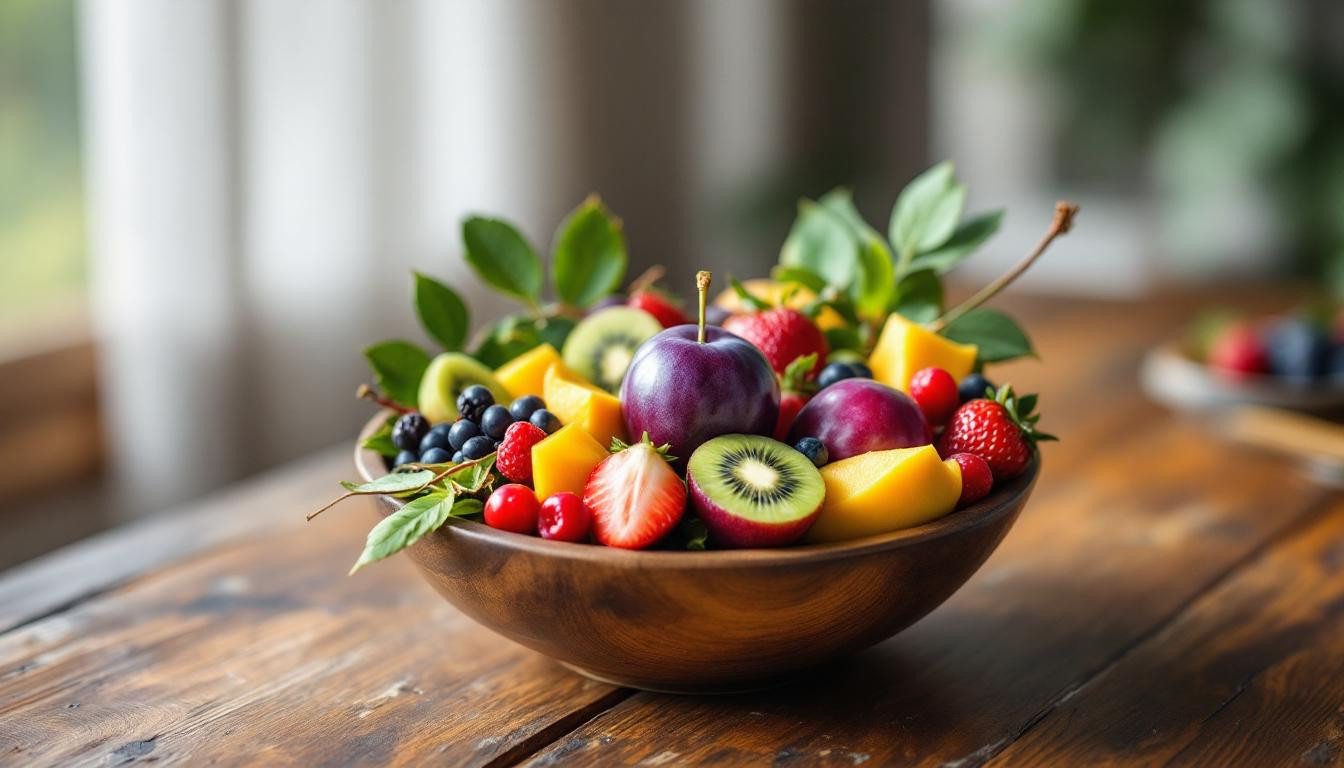When it comes to vitamin C powerhouses, oranges often get all the glory. But what if I told you there are fruits that leave oranges in the nutritional dust? As someone obsessed with natural immune boosters, I’ve discovered a world of vitamin C champions that deserve the spotlight.
The surprising truth about vitamin C content in fruits
While oranges contain about 70 mg of vitamin C per medium fruit, several other fruits pack a much more powerful punch. “Many people are shocked to learn that oranges aren’t even in the top ten for vitamin C content,” says Dr. Maria Chen, nutrition researcher at Pacific Health Institute. “Some lesser-known fruits contain up to 40 times more vitamin C than oranges.”
This discovery comes at a perfect time, as more people are looking to naturally strengthen their immune systems without relying on supplements.
The undisputed champion: Kakadu plum
Native to Australia, the Kakadu plum contains up to 2,907 mg of vitamin C per 100 grams – a staggering 50 times more than oranges. “The Kakadu plum is like nature’s vitamin C supplement,” explains nutritionist Dr. Sarah Thompson. “Just one small fruit can provide your entire daily requirement and then some.”
Tropical treasures that outshine oranges
Several tropical fruits deliver impressive vitamin C levels that orange growers can only dream about:
- Acerola cherries: 1,700 mg per 100 grams
- Guava: Over 200 mg per 100 grams
- Kiwi: About 137 mg per serving (two fruits)
- Mango: Approximately 122 mg per fruit
Adding these tropical delights to your diet can be a delicious way to boost overall health, including better blood pressure management.
Everyday alternatives with surprising vitamin C content
You don’t need exotic fruits to get your vitamin C fix. These everyday options all surpass oranges:
- Strawberries: 85 mg per cup
- Pineapple: 79 mg per cup
- Papaya: 80 mg per 100 grams
- Blackcurrants: 180 mg per 100 grams
The northern hemisphere’s vitamin C secret
Seaberry (sea buckthorn), nicknamed “the lemon of the north,” contains about 450 mg of vitamin C per 100 grams. These tart berries have been used medicinally for centuries in northern Europe and Asia.
I witnessed the power of seaberries firsthand when visiting Finland, where locals credit their winter health to regular consumption of these vitamin-packed fruits, even when temperatures plummet below freezing.
Rose hips: The forgotten vitamin C superfood
Rose hips, the fruit of the rose plant, contain exceptional amounts of vitamin C. “Think of rose hips as vitamin C bombs waiting to explode with health benefits,” says herbalist James Wilson. “They’re like nature’s immune system artillery.”
These can be brewed into teas or made into jams, providing excellent nutrition while helping to stabilize blood sugar levels.
Beyond vitamin C: Complete nutrition profiles
Many high-vitamin C fruits also contain other valuable nutrients. For instance, guavas and potassium-rich fruits offer a double benefit for cardiovascular health.
Similarly, papayas and mangoes provide ample vitamin A alongside their vitamin C content, creating a nutritional synergy that benefits everything from skin health to immune function.
How can you incorporate these superfruits into your daily routine?
Consider these fruits as your body’s natural medicine cabinet. Like depositing health currency into your wellness account, each serving builds your resilience against illness. Start by replacing one snack daily with a high-vitamin C alternative to oranges, and watch as your energy and immunity transform subtly but significantly over time.
Your body deserves the best defense nature offers – why settle for oranges when these vitamin C champions are waiting to revolutionize your health?
